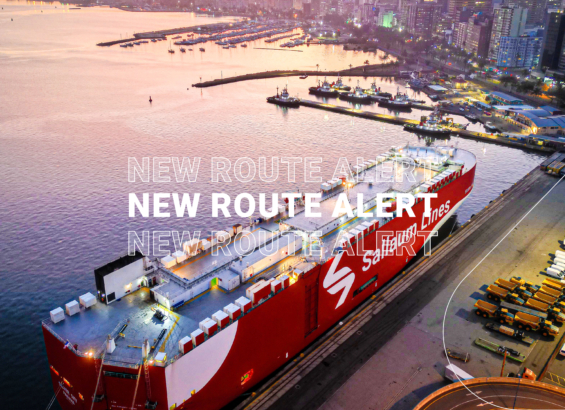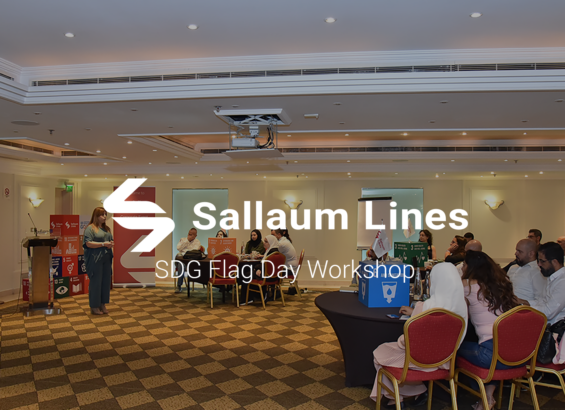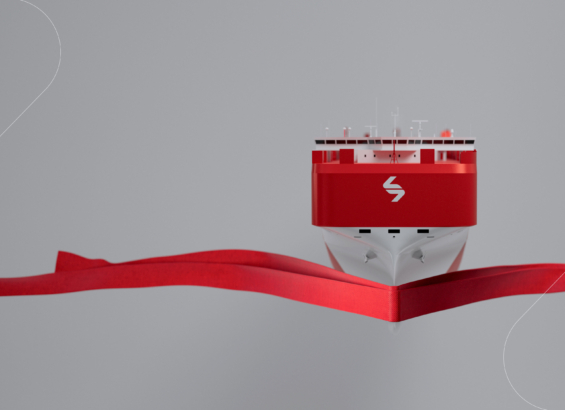News, Shipping, Sustainability
Introducing Advanced Safety and Security Features Aboard Sallaum Lines’ Newbuildings
At Sallaum Lines, we continuously strive to reach the highest standards of safety and operating efficiency aboard our vessels. Our new buildings are equipped with modern safety and security features designed to protect our crew and cargo, increasing operational performance. These advanced systems integrate state-of-the-art technology with comprehensive oversight for a safe and secure environment on board.
Improving safety measures on vessels involves integrating advanced surveillance and AI-driven systems for continuous observation and real-time data analysis, thus enhancing detection and response to potential safety breaches. Automation, such as phone, helmet recognition, and suspected sleeping detection, reduces human error and enforces compliance with safety protocols. Early detection systems, like thermal cameras for fire warnings and smoke detectors, help prevent hazards. Behavioral analysis assures crew vigilance, while perimeter security with motion detectors secures vessel boundaries. Automated systems enhance operational efficiency and emergency preparedness by ensuring all crew members are accounted for health regulations such as smoking policies. Environmental systems provide data for managing adverse conditions, and the information collected aids in training, raising safety awareness, and data-driven decision-making to continuously improve safety measures.

Facial Recognition
Facial recognition security cameras have emerged as a formidable tool against unauthorized access and intrusions. These advanced systems capture high-resolution images through cameras, analyzing unique facial features such as the distance between the eyes and nose shape. The captured images are then meticulously compared to a pre-stored database of authorized individuals, ensuring accurate identification. In the event of detecting an unauthorized person, the system promptly triggers alerts or alarms, enhancing security measures and safeguarding sensitive areas.
Long Stay & Off-Duty Recognition
Absence recognition systems on vessels track attendance, verify presence at assigned stations, quickly identify missing personnel, and facilitate faster evacuation and rescue operations. Additionally, these systems enforce safety compliance and reduce human risks associated with unattended critical positions.
Helmet Recognition
Helmet recognition systems verify that crew members wear helmets in designated areas, preventing head injuries and enhancing workplace safety. Real-time monitoring provides immediate alerts for corrective actions, automating compliance and freeing maritime personnel for other tasks. Data collected on helmet use informs safety policies and training programs.

Early Fire Warning
Early fire warning systems utilize smoke alarms, thermal imaging cameras, and gas sensors to identify fire endangerment at its inception, allowing for immediate responsive actions. Paired with automated fire suppression, these systems facilitate rapid fire containment, mitigating spread and minimizing potential risks to the vessel and its personnel.
Intrusion Recognition Systems
Intrusion recognition on vessels utilizes sensors, cameras, and alarms to constantly watch over the vessel externally and internally, enabling quick identification of intrusion attempts and timely response actions. Access control systems manage entry points, and video surveillance monitors critical areas in real time. Physical barriers like fences and gates complement electronic monitoring, creating a layered defense against unauthorized access. Moreover, cybersecurity protocols safeguard electronic security systems from digital threats, ensuring robust protection of onboard security infrastructure.
Smoking Detection
Smoking detection systems employ advanced smoke detectors and sensors to identify instances of smoking, promptly alerting crew members. By effectively preventing fire risk, these systems contribute significantly to operational safety, fostering a smoke-free environment aboard vessels. This proactive approach supports crew welfare and enhances overall safety protocols, mitigating potential smoking-related hazards.

Incorporating these advanced safety features on Sallaum Lines’ new buildings indicates a significant advancement in marine safety and operational performance. By leveraging the latest technical breakthroughs, we are advancing our crew’s and cargo’s immediate safety and establishing a new industry standard for proactive safety management, thus cultivating a culture characterized by smooth and safe maritime trade. These advances enable us to respond quickly and efficiently to possible threats, ensuring our LNG-fueled vessels remain safe and efficient under all conditions.



